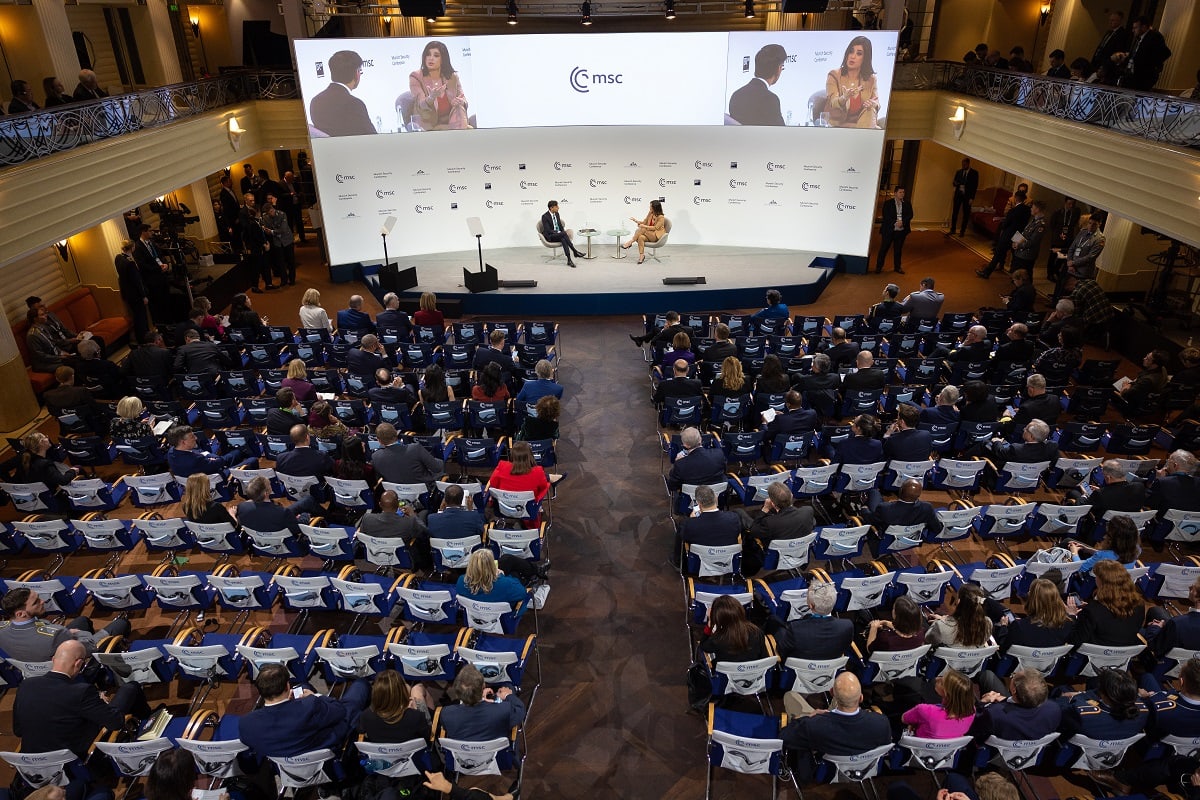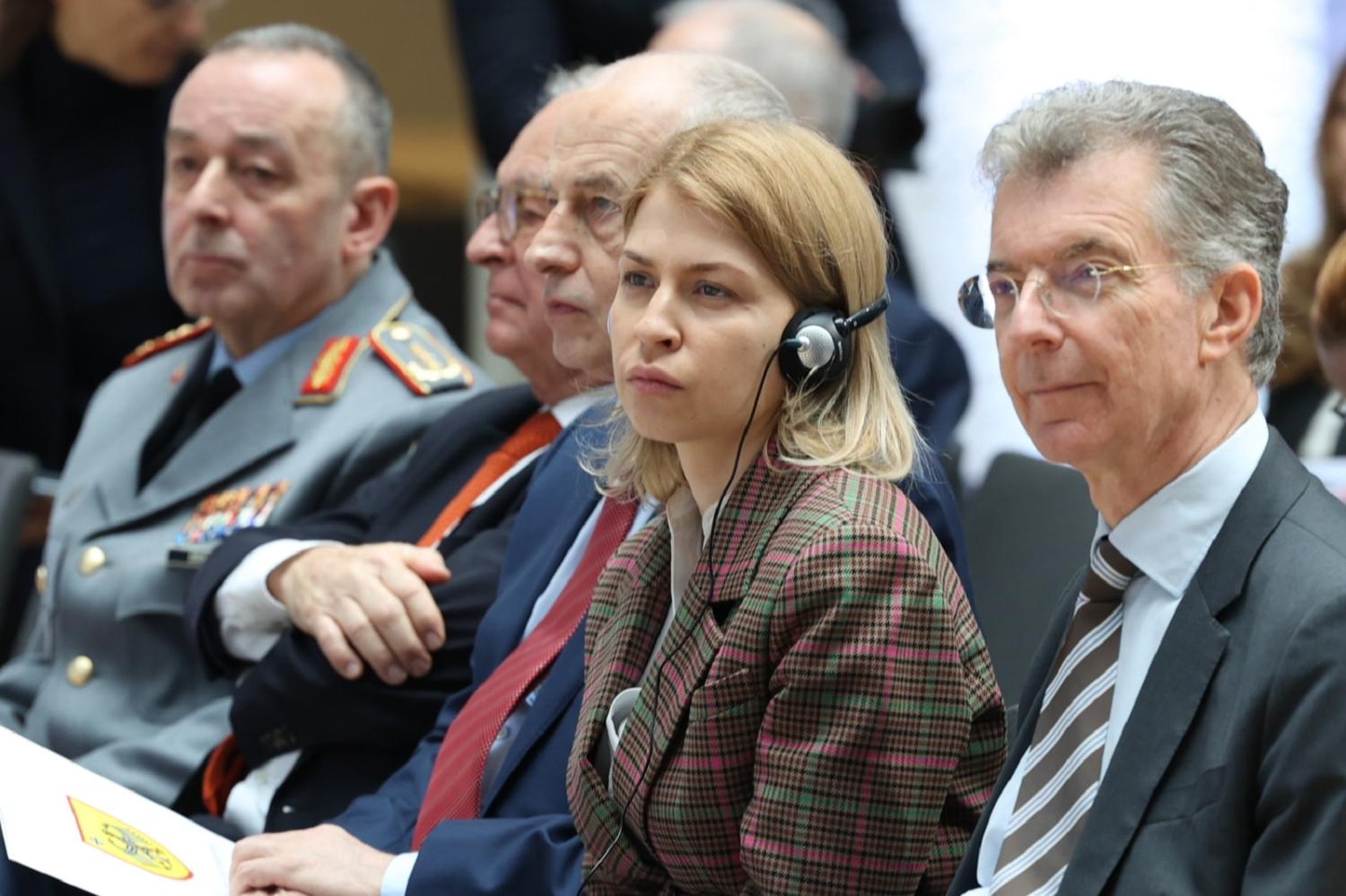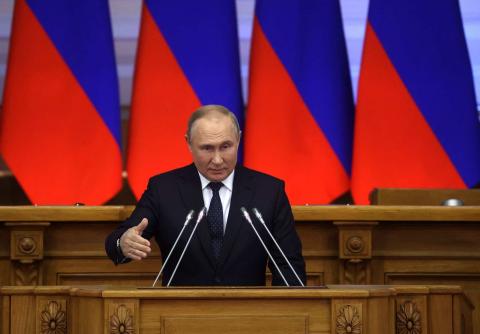The Munich Security Conference this year took on a new character. The meeting, held last weekend, involving leaders from across Europe and elsewhere debated the greatest international security issues in ways not raised since the Moscow Conference of 1943 and the London Conference of 1945. As the grim anniversary of Russia’s invasion of Ukraine loomed, delegates linked the fate of the international order with a call for an end to impunity and a demand for those responsible for atrocity crimes to be held to account.
Back in the 1940s, the Moscow and London conferences paved the establishment of the Nuremberg Tribunal, whereby government, military and industrial leaders of Nazi Germany were prosecuted for war crimes, crimes against humanity and crimes of peace. Similarly, the Moscow and London conferences created a road to accountability in national courts, including for Rudolf Höss, the notorious Kommandant of Auschwitz (Oświęcim) concentration camp, who was prosecuted in the Supreme National Tribunal of Poland in 1947 for crimes against humanity.
This link between international security and criminal accountability was raised in Munich last weekend by Conference Chair Christoph Heusgen, who noted in his opening remarks that Vladimir Putin had committed a breach of civilisation – the first in Europe since the Second World War – whereby one country denied another the right of existence and committed to an all-out war. Heusgen detailed the atrocity crimes committed since Russia’s invasion, but was careful to highlight that Ukraine was not alone. Atrocities were being committed in other countries around the world, including in Myanmar and Syria, and against the Uyghurs in Xinjiang. In light of those and other human rights crimes, Heusgen dedicated the first panel of the Conference to the theme of preventing impunity and improving options for accountability. The system of international security was on the precipice. The UN Charter and rules-based international order was under attack. Putin’s war in Ukraine, Heusgen emphasised, was not a battle between East and West, or between NATO and Russia. It was fundamentally a battle between “the rule of law” and the “law of the strongest” – one that concerned the whole world. It was a striking way to kick off the annual conference.

Heusgen was not alone. Delegates were keen to reiterate his messages, including the necessity for accountability in international, regional and domestic criminal tribunals in a way emblematic of the Moscow and London conferences. Indeed, Ukraine President Volodymyr Zelenskyy, German Chancellor Olaf Scholz, French President Emmanuel Macron, UK Prime Minister Rishi Sunak, European Commission President Ursula von der Leyen and US Secretary of State Antony Blinken argued similar cases.
This sentiment extended to the most unlikely delegates. Surprisingly, the panel dedicated to preventing impunity and improving accountability included the Prosecutor of the International Criminal Court Karim Khan, 2018 Nobel Peace Prize Laureate Nadia Murad, and US Senator Lindsey O. Graham, among others. Graham agreed emphatically with both Murad and Khan on the need for greater accountability for atrocities committed in Ukraine. Unlike Khan’s predecessor Fatou Bensouda, who was sanctioned for investigating the United States for alleged atrocity crimes in Afghanistan under the Trump administration, Graham invited Khan to travel to the United States to receive evidence. Accountability for atrocities in Ukraine has forged a rare alliance between US Republicans and Democrats.
Why this sudden volte-face? One could plausibly highlight the double standards reflected in the stance adopted by the United States, including accountability for atrocities committed during the 2003 invasion of Iraq. This is difficult to deny. But Graham, Heusgen and Sunak’s concerns also highlight other perceived threats – ones that go to the very heart of the international order and the UN system.
First, delegates at the Munich Security Conference wished to put senior leaders in Putin’s regime on notice: if you commit atrocity crimes you will be held to account. Delegates were keen to highlight options for accountability, and like the Moscow and London conferences they include international and national criminal courts. They were also keen to alert the Putin regime to a commitment to the collection of evidence, which the ICC and EuroJust, among others, have already started, including linking those most responsible to the underlying crimes.
Second, Ukraine gave up its nuclear weapons in return for full sovereignty. Yet the fact that Russia has orchestrated a full-scale invasion as a nuclear state makes it increasingly difficult for other states to reconcile relinquishing a nuclear weapons program in the future, including Iran.
Third, delegates wish to send a message to other leaders flirting with the notion of invading a nearby country, including China’s leader Xi Jinping. The message is that the costs for impunity will be high and that accountability for government, military and industrial leaders, including at the highest level, for crimes of aggression, war crimes and crimes against humanity is assured.
Like the 1940s conferences in Moscow and London, the Munich Security Conference signals a new era – one where accountability is directly linked to the stability of the international order.
All views expressed are those of the author.

